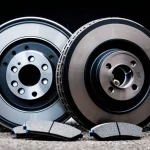Essential UK Legal Requirements Before Starting Conversion
Before undertaking any engine conversion on your vehicle, it is crucial to understand the UK car conversion laws to ensure compliance with all regulations. First, you must notify the Driver and Vehicle Licensing Agency (DVLA) about the intended changes. The DVLA requires detailed information about the engine swap to update the vehicle’s records accurately. Failure to comply can result in fines or your vehicle being deemed unroadworthy.
In addition to notifying the DVLA, obtaining prior permissions or approvals may be necessary, especially if your conversion alters the vehicle’s weight category or performance specifications. The DVLA evaluates these changes to determine roadworthiness and eligibility for road tax.
In parallel : Top tips for maintaining your retractable hardtop convertible in the uk’s unpredictable weather
Equally important are the vehicle regulations relating to emissions. UK law mandates adherence to strict emissions compliance standards, and conversions must not increase a vehicle’s pollutant output beyond acceptable limits. For example, swapped engines must meet or exceed the emissions standards that applied when the vehicle was first registered. Failing to comply can lead to MOT failures and restrictions on using the vehicle in low-emission zones.
Adhering to these legal parameters not only ensures that your conversion is lawful but also protects your investment and safety on the road.
In the same genre : Enhance your car’s cooling efficiency: top tips for optimal performance in the uk’s dynamic climate
Step-by-Step Instructions for Converting a Petrol Car to Diesel
Converting a petrol car to diesel involves several critical petrol to diesel conversion steps requiring precision and understanding of both engine types. First, prepare your vehicle by thoroughly inspecting the engine bay and the car’s compatibility with diesel engines. sourcing a suitable diesel engine and compatible components is essential—ideally, choose an engine designed for your car’s make and model to ensure seamless integration.
Next, the car engine swap UK process begins with the careful removal of the petrol engine alongside related components such as the fuel system and exhaust manifold. Installing the diesel engine involves fitting it into the engine bay, connecting the fuel injection system, and ensuring the cooling and electrical systems are adapted properly.
Once installed, perform integration checks by testing ignition, fuel delivery, and emissions systems. Mandatory checks include verifying the engine management system’s functionality and a thorough road test to detect any irregularities. Troubleshooting post-installation might involve adjusting timing or replacing sensors specific to diesel engines.
Following this vehicle transformation guide ensures a successful, efficient, and compliant petrol to diesel conversion that balances performance and longevity.
Updating Documentation and Meeting Regulatory Standards
When performing an engine swap, it is crucial to inform the DVLA promptly to update your vehicle’s records accurately. The V5C amendment must reflect the new engine details to maintain legal compliance. Failure to update these records can lead to penalties or complications during vehicle inspections.
After the swap, your vehicle will require an MOT test focusing on the engine’s condition and emissions. The MOT after an engine swap must confirm that emissions remain within acceptable limits, which often involves obtaining specific emissions certification. This certification verifies that the new engine complies with environmental standards, ensuring roadworthiness.
Ensuring compliance means gathering and submitting all necessary paperwork to the DVLA updates, including the updated V5C form and emissions documents. This comprehensive approach avoids delays or legal issues when the vehicle undergoes further testing or is sold.
By following these steps—updating the V5C registration, securing emissions approval, and passing the MOT—you align your vehicle with all regulatory standards. This not only protects you legally but also guarantees your vehicle meets safety and environmental requirements after an engine swap.
Adjusting Insurance and Road Tax for the Modified Vehicle
When you modify your vehicle, it is essential to update your vehicle insurance promptly. Notifying insurers about changes, such as engine upgrades or exhaust alterations, ensures your coverage remains valid and reflects the vehicle’s current value and risk profile. Failing to notify your insurer can lead to denied claims or policy cancellation.
After modifying your vehicle, notifying insurers involves submitting detailed information about the changes for approval. Insurers might request additional documentation or an inspection to adjust premiums accordingly. Transparency during this process prevents complications and guards against liability concerns.
Modifications can also affect your road tax, especially if your vehicle’s classification changes. For example, if your diesel vehicle’s emission profile is altered, you must reassess the applicable road tax diesel rates. This may result in higher or lower fees depending on official regulations tied to emissions and engine capacity.
Updating road tax and insurance ensures compliance with legal requirements and maintains your financial protection. Contact the relevant authorities for guidance on recalculating your road tax and consult your insurer to complete the update efficiently. This proactive approach keeps your modified vehicle legally compliant and insured against risks.
Costs, Parts, and Professional Labour Considerations
Understanding the conversion cost UK landscape requires detailed attention to both diesel parts pricing and mechanic labour rates. Diesel engine components, such as fuel injectors, turbochargers, and exhaust systems, vary widely in price depending on brand and quality. Selecting premium diesel parts may increase upfront costs but often leads to better engine performance and durability, making it a worthwhile investment.
Professional mechanic labour rates in the UK typically range from £60 to £100 per hour, influenced by geographical location and workshop prestige. Converting an engine is a complex task that often demands 20 to 40 hours of skilled work. This makes labour a significant part of the overall conversion cost UK.
Financial planning for engine conversion should factor in both the cost of diesel parts and labour fees. Expect to allocate a budget that covers parts procurement, fitting, system calibration, and unexpected adjustments. Breaking down all expenses helps avoid surprises and ensures financial readiness.
By thoroughly calculating the combination of diesel parts and mechanic labour rates, vehicle owners can make informed decisions about engine conversions, balancing quality, cost, and professional expertise effectively.
Potential Benefits, Risks, and Environmental Impact
Understanding the diesel conversion pros and cons is essential before modifying a vehicle. One major benefit is improved fuel efficiency. Diesel engines generally consume less fuel than their petrol counterparts, which can lead to significant cost savings. Additionally, a well-executed diesel conversion may enhance the longevity of the vehicle’s engine, potentially increasing its resale value.
However, there are important risks to consider in a thorough risk analysis. Compatibility issues might arise if the original vehicle was not designed for diesel engines, possibly leading to engine or transmission problems. Legal pitfalls also exist; many jurisdictions impose strict regulations on engine conversions, impacting vehicle registration and insurance. These legal challenges can cause unexpected expenses and delays.
From an environmental considerations standpoint, emissions levels may change after conversion. While modern diesel engines can be cleaner and more efficient, older diesel technologies might increase pollutants like nitrogen oxides. Ensuring compliance with local environmental standards is crucial to avoid fines and support sustainability goals. Evaluating these factors will help determine whether a diesel conversion aligns with your priorities and regulatory environment.
Official Resources and Trusted Guidance for Conversions
To ensure compliance with vehicle conversion regulations in the UK, the official vehicle conversion guidance UK provided by the Driver and Vehicle Licensing Agency (DVLA) is indispensable. The DVLA offers clear instructions on conversion requirements, documentation, and registration processes. Accessing these DVLA resources early helps avoid costly errors and ensures vehicles meet safety and environmental standards.
When undertaking a vehicle conversion, consult the DVLA’s published manuals and checklists that detail modifications needing notification or inspection. For those unfamiliar with regulatory language, trusted automotive advice forums and professional groups can demystify complex legal obligations. These communities share real-world experiences and practical tips, pinpointing essential steps like applying for a Vehicle Identity Check or fitting compliance plates.
Experts recommend using official vehicle conversion guidance UK as the foundation of your project while supplementing with advice from seasoned professionals. Forums such as specialist UK motor trade groups provide peer-reviewed insights that complement the DVLA’s technical documents. Blending these reliable sources fosters confidence that your converted vehicle is both legal and safe, protecting your investment and ensuring roadworthiness under UK law.

